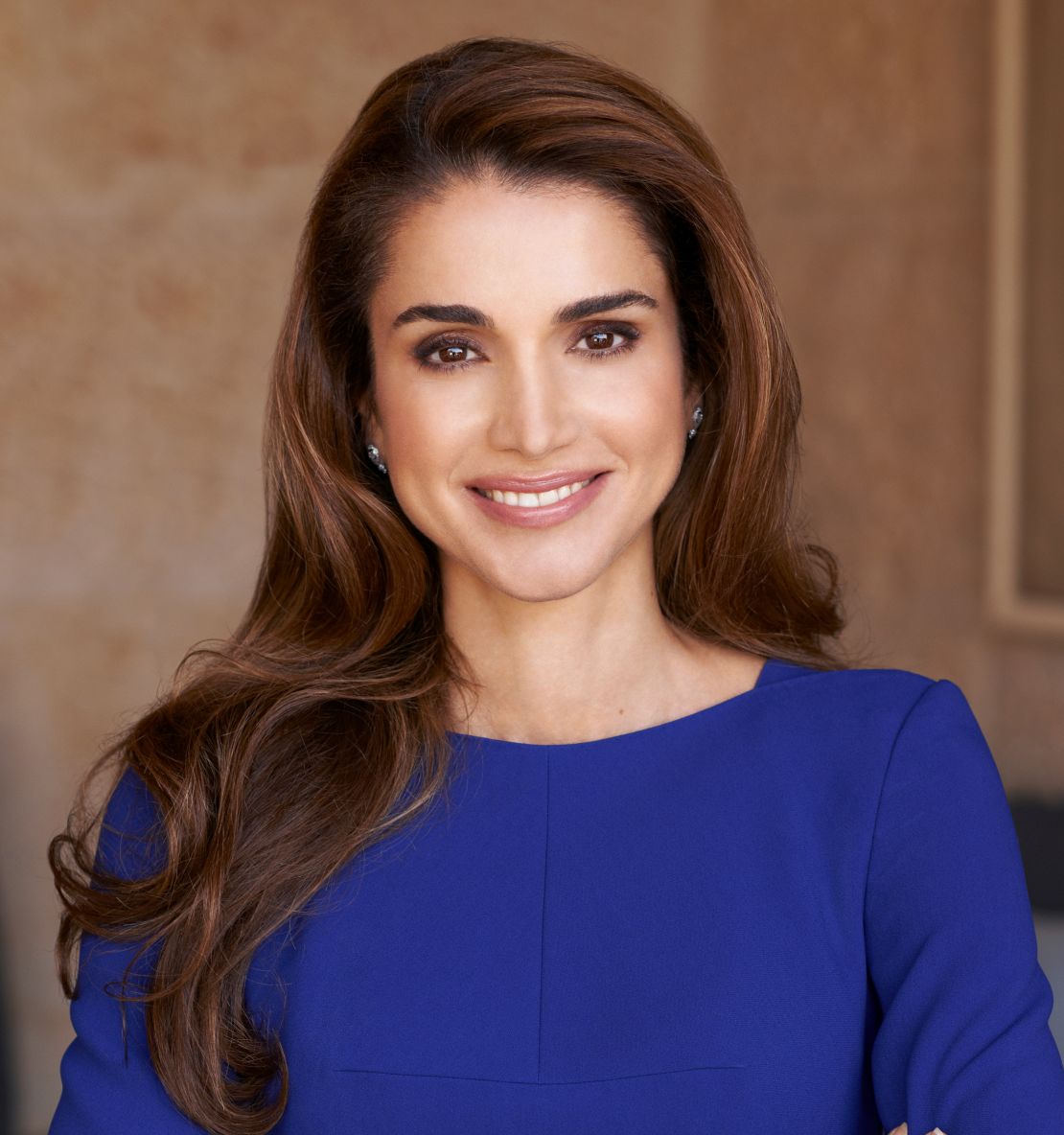Editor’s Note: Her Majesty Queen Rania Al Abdullah is queen of Jordan and has been an advocate for children’s education for years in her country, across the region and around the world, working with such groups as UNICEF. This open letter to the girls of the world is part of the “Girl Rising” project. CNN Films’ “Girl Rising” documents extraordinary girls and the power of education to change the world.
Story highlights
Queen Rania of Jordan writes an open letter to girls of the world
Dear Girls of the World,
Some of you will be familiar with the childhood rhyme, “What are little girls made of? Sugar and spice and all things nice, that’s what little girls are made of.”
Marketing and stereotyping combine to have us believe that you’re also made of pink dresses, pigtails, dolls, ringlets, ribbons, bows and tiaras. That you like cupcakes. That all you will want to be are wives and mothers. That you’re more “inclined” to the arts and “better suited” to caring professions like teaching and nursing.

And, maybe, that’s true for some. But my daughter Salma teaches me every day that there’s so much more to you – and for you.
Salma is 13, and I can count, on one hand (in fact, on one finger!), the occasions she’s worn a dress – and they’ve never been pink! Dolls always stayed on the shelf. She’s happiest dribbling a soccer ball past her brothers and scoring goals or building model airplanes with her father. She dreams of being an engineer. That’s my Salma; that’s why I love her.
So, when I think about girls rising, I think of girls like her and her sister, Iman. I think of the millions of courageous girls all over the Arab world and beyond who, every day, summon inner strength, surmount barriers and make a difference in their communities.
Let me tell you about 16-year-old Wafa Al-Rimi.
Some days in Yemen, there’s less than one hour of electricity, so studying is tough.
“We were tired of darkness,” Wafa said in an interview.
Rather than accept defeat, though, she built foundations under her dreams. With help from business mentors, she formed an all-female company that created solar-powered lights. They won INJAZ Al-Arab’s Best Company of the Year in November.
Wafa and her friends are part of a new generation of independent-thinking Middle Eastern girls: torch-bearers and trail-blazers.
Today, almost as many girls as boys attend primary and secondary school. In the majority of Arab countries where there’s data, women outnumber men at university, and more women than men study science.
I see and I hear that determination to succeed every day in Jordan.
Recently, I visited a girls’ school in the south of Jordan where 12-year-old Noor told me about her grandmother, a famous storyteller who narrated other people’s stories. Noor was proud of her “teta,” but she had her own dream.
“I want to be mayor,” she said. “I want to build a library full of books; I want to build a park so that children can play safely.”
Noor wanted to write her own story. I knew then that she, and girls like her, would write a new chapter for our region.
It won’t be easy. We have a long way to go. Increases in girls’ attendance at school and university are not yet reflected in politics, the job market or society’s mindsets. And there are still 5 million girls out of primary and secondary school across the Arab world.
But as the political, social and economic plates shift and settle around our region, there’s never been a better time for girls to rise up and share their talents with society. And, girls! Society has never needed you more.
We know that in every country around the world, healthy, educated girls can play a crucial role in stabilizing societies, resolving conflicts, bolstering democracies, strengthening economies and nurturing healthy and educated children.
But they can’t do it alone.
Role models can inspire. Campaigns can motivate. But if we want all girls everywhere to rise up, then we must find them, befriend them and support them.
That means going outside our comfort zones. Maybe they’re recovering from civil war in Sierra Leone, like Mariama – now educated and a popular radio DJ. Maybe they’re trapped in servitude in Nepal, like Suma – now an activist working to free others. Maybe they’re living in slums in India, like Ruksana – now strong and in school. (Find out more about their stories.)
And it means using our voices to speak up for those who cannot yet be heard. Lobbying for girl-friendly policies. Working with governments, non-governmental organizations, U.N. agencies and the private sector to create momentum for change.
Will it be easy? No.
Will it be as hard as studying in the dark or sleeping on a pavement? Enduring slavery or rebuilding a life after war? Going to school hungry and still achieving good grades? Certainly not.
And if we falter in our resolve, let’s remember the strength and dignity of Wafa, Noor, Mariama, Suma, Ruksana and girls everywhere who, every day, fight for their right to education and opportunity.
If one girl with courage is a revolution, imagine what feats we can achieve together.
– Her Majesty Queen Rania Al Abdullah
Write your own open letter to girls of the world













